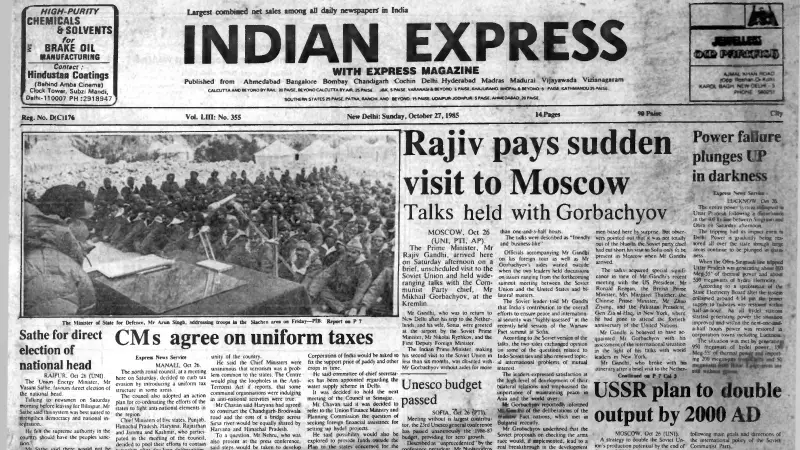
October 27, 1985, marked a significant day in India's political landscape as Prime Minister Rajiv Gandhi navigated both international diplomacy and domestic challenges with strategic finesse.
A High-Stakes International Meeting
While global attention focused on Rajiv Gandhi's crucial meeting with Soviet leader Mikhail Gorbachev, a parallel political development was unfolding domestically that would have far-reaching implications.
The Prime Minister's diplomatic engagement with the Soviet Union came at a time when India was carefully balancing its foreign policy relationships during the Cold War era. This meeting underscored the continued importance of Indo-Soviet ties despite changing global dynamics.
Punjab's Controversial Decision
Simultaneously, the Punjab government made headlines by deciding to withdraw 309 cases, a move that signaled a potential shift in approach toward the complex political situation in the state.
This decision represented a significant political calculation, coming during a period of heightened tensions in Punjab. The withdrawal of these cases was seen by many as a confidence-building measure, while others viewed it as a controversial concession.
Strategic Timing and Implications
The coincidence of these two events on the same day highlighted the multifaceted nature of governance during Rajiv Gandhi's administration. While engaging in high-level international diplomacy, the government was simultaneously addressing delicate domestic political challenges.
This dual approach demonstrated the administration's attempt to maintain India's strategic international partnerships while navigating complex internal security and political considerations.
Legacy of October 27, 1985
Four decades later, this day remains noteworthy for illustrating the interconnected nature of foreign policy and domestic politics. The decisions made on both fronts would continue to influence India's political trajectory and international relationships in the years that followed.
The simultaneous handling of international diplomacy with a superpower and sensitive domestic political decisions showcased the complex balancing act that has long characterized Indian governance.





